Before
the
First
Shots
Are Fired
Before
the
First
Shots
Are Fired
How America Can Win or Lose Off the Battlefield
General
Tony Zinni
and
Tony Koltz

The author and publisher have provided this e-book to you for your personal use only. You may not make this e-book publicly available in any way. Copyright infringement is against the law. If you believe the copy of this e-book you are reading infringes on the authors copyright, please notify the publisher at: us.macmillanusa.com/piracy .
To the veterans of the Vietnam War,
who didnt get the thanks they deserved
from the American people.
Contents
Preface
Several years ago I set out to write a book about the differences between the conflicts we find ourselves embroiled in today and the conflicts of the past. But as my research and thinking progressed, I began to reflect more and more on actions that happened away from the battlefield and how significantly these actions affected success or failure on the battlefield, especially those that were taken, or not taken, before we put our troops in harms way. That seemed to me to be a far more important story, and far more helpful to understanding how we should deal with military commitments today.
When I joined the United States Marine Corps as an eighteen-year-old in 1961, I would have told you that wars are always decided entirely on the battlefield. Thats where the generals win or lose. I retired in 2000 after four decades of service and multiple experiences in wars and military interventions. By then I had come to realize that there is more to it than that. Political decisions, intelligence estimates, strategies (or their absence), and many other non-battlefield components influenced outcomes to a far greater degree than that eighteen-year-old new Marine could have ever imagined. These off the battlefield components have become increasingly significant as each new intervention is attempted in todays complex world.
Few Americans realize how many essential pieces have to fall into place before Johnny goes marching off to war, or how much these pieces drive success or failure after he deploys over there. If we have a top-notch team of decision makers, strategists, and analysts in Washington, Johnnys or Janes chances of success on the battlefield are exponentially enhanced.
There have been times in the past when weve had that team and times when we didnt.
War is too important a matter to leave to soldiers, said French premier Georges Clemenceauan idea often rephrased as War is too important to be left to generals. Truth is, Ive never met a general who wants a war to be left to him alone. When our nation sends military forces into action, every general I have known wants his civilian political masters as committed, involved, and accountable as he himself must be.
Too often, that is not the case. And too often, I have seen severe disconnects between civilian and military leaders. There is a war battlespace and a Washington battlespace, as former Defense Secretary Robert Gates calls it. These battlespaces are not in sync; they are separate and distinct. This splitI would call it a chasmlies behind all the failures Gates saw in the bumbling management of two wars and other twenty-first-century crises. Instead of direction and leadership, we have political infighting, personal frictions, political generals who lost their warfighting ethos while serving in the capital, and greater anxiety over political blowback than battlefield success.
The split is growing and must be fixed.
To fix it, we need to analyze our past military experiences, especially our most recent ones, and learn from them.
Tony Zinni
One
How the Hell Did We Get Here?
Never, never, never believe any war will be smooth and easy, or that anyone who embarks on the strange voyage can measure the tides and hurricanes he will encounter. The statesman who yields to war fever must realize that once the signal is given, he is no longer the master of policy but the slave of unforeseeable and uncontrollable events.
Sir Winston Churchill
Everything in war is simple, but the simplest thing is difficult. The difficulties accumulate and end by producing a kind of friction that is inconceivable unless one has experienced war.
Carl von Clausewitz
Over the last five decades, I have personally taken part in commitments of our military to a variety of missions inside and outside our country, ranging from war to humanitarian assistance, and Ive witnessed many more. I have followed these commitments from their initial spark or trigger, through the planning and execution, and to the final assessment after it was all over. I have seen these experiences from every possible perspective, from the battlefield to decision briefs inside the Oval Office. More than anything else, Ive been impressed in each of these actions by the tremendous dedication, adaptability, and resourcefulness of our troops on the ground. They take the mission to heart and give their all to succeed. They have never let us down.
And yet, after our military actions have ended, Ive too often been left with worrisome questions. Why do we now find ourselves fighting so many wars that end without a clear victory? In recent times the end state of American wars and military interventions hardly ever looks anything like their original goals. Too often there is a disconnect between decision and conclusion. Im sure President Kennedy did not foresee the consequences when he decided to greatly increase the number of advisors into Vietnam in the early 1960s, nor did President Johnson when he began sending in US ground forces there, nor did President Bush when he ordered the toppling of the Taliban in Afghanistan and the invasion of Iraq. Time and again, I have come away from a military commitment with a nagging sense that our involvement started with a clean slate, as though earlier ones have been forgotten or ignored. We seem to start essentially from scratch each time we consider launching another military action. Didnt we learn from the last one, or the one before that? Do wars and conflicts have to be like the film Groundhog Day, with each one doomed to repeat earlier mistakes?
And ultimately, how do we get into these conflicts in the first place?
The course and end state of every war may be unknowable in every detail, but the general process of military commitment follows a clearly repeating pattern, with similar stages. We can extract lessons from this pattern that will help us understand the actions we need to take, or to avoid, when the next foreign crisis appears.
Although we have been struggling for decades to define our role and purpose in an ever more confused and confusing world, one thing is certain. The world is much more interdependent and interlocked than it was when the Iron Curtain came crashing down. That means American interests and security, as well as the global leadership we have taken up and that the rest of the world expects of us, will continue to require our military to be involved in missions around the globe. Still, we have to be realistic. Our resources and abilities are limited; we cant do it all. Carefully choosing our commitments and courses of involvement and clarifying our objectives at the outset are more crucial today than ever before.
Americans often imagine that when were hit with a troubling event that may require a military response, the president and his chief advisors make a quick but thorough study of the options; he forms a clear-eyed decision; the armed forces are launched; and the crisis is on the way to resolution. In reality, military responses normally take a twisted path, from the triggering event to conclusion to long-term impact. Virtually every recent American military operation follows a disconnected, sometimes convoluted, series of actions that lead to outcomes we never foresaw or intended.
Next page

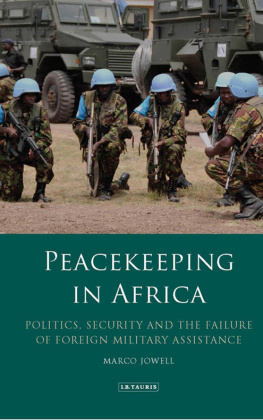
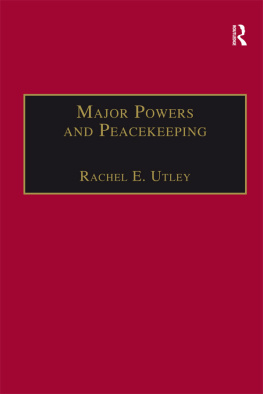
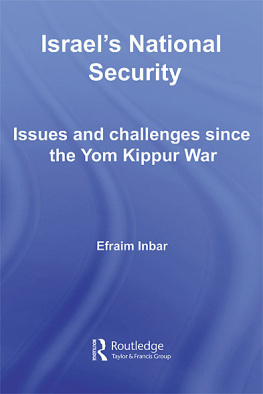


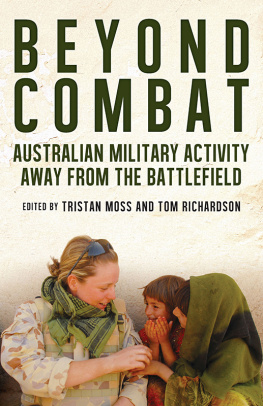
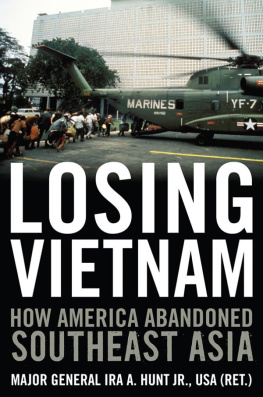
![Fawcett - How to lose the Civil War : [military mistakes of the War between the States]](/uploads/posts/book/92687/thumbs/fawcett-how-to-lose-the-civil-war-military.jpg)
